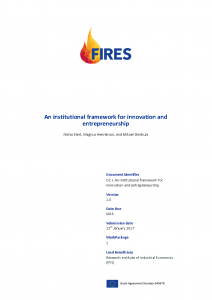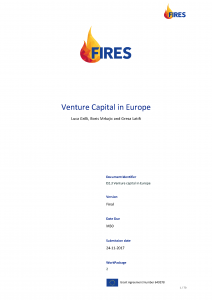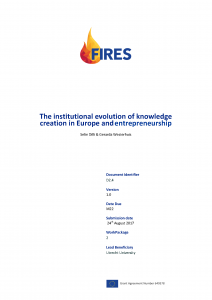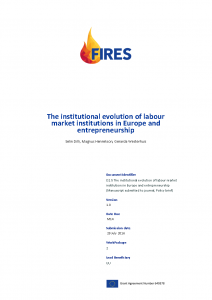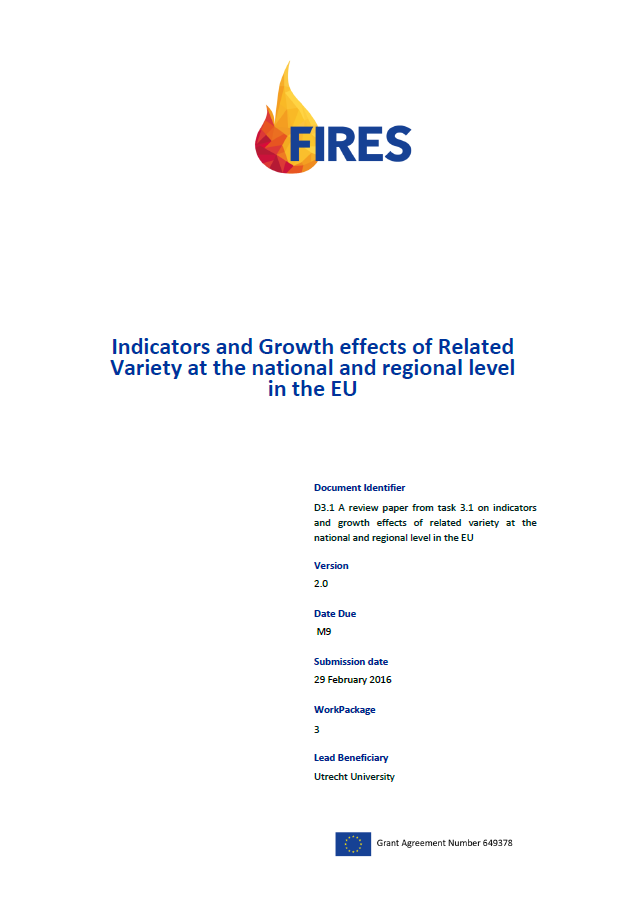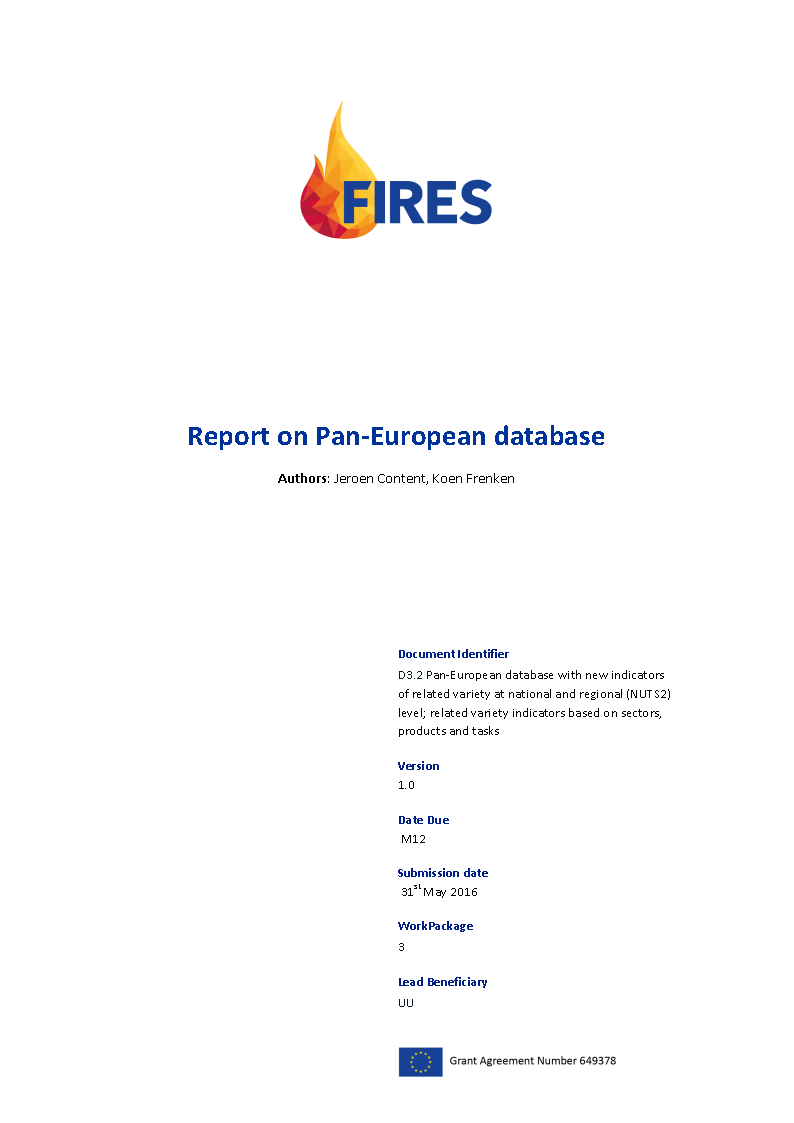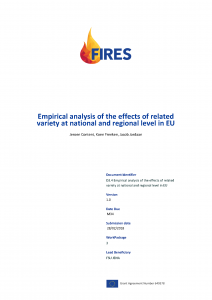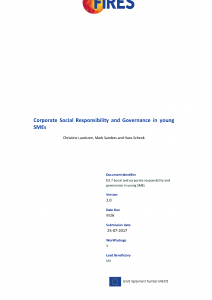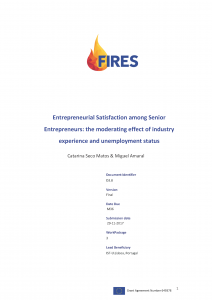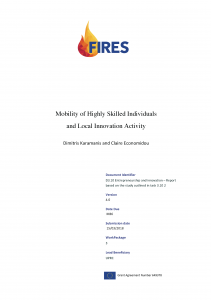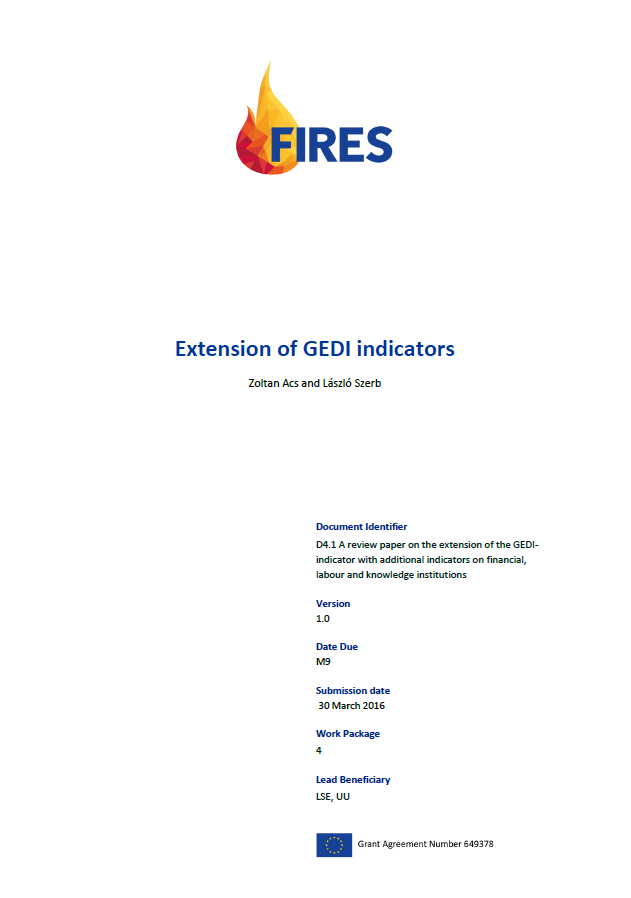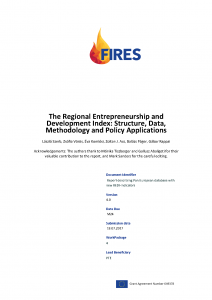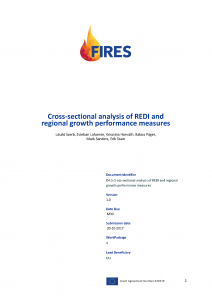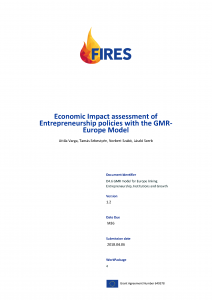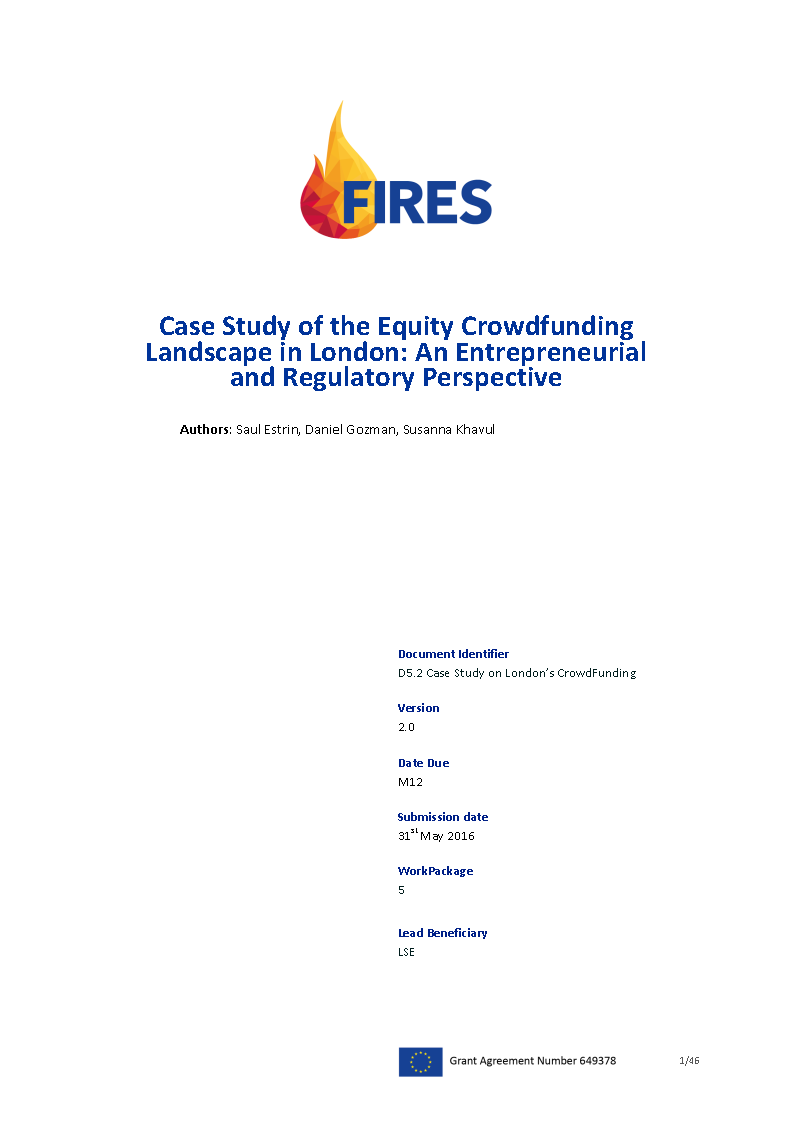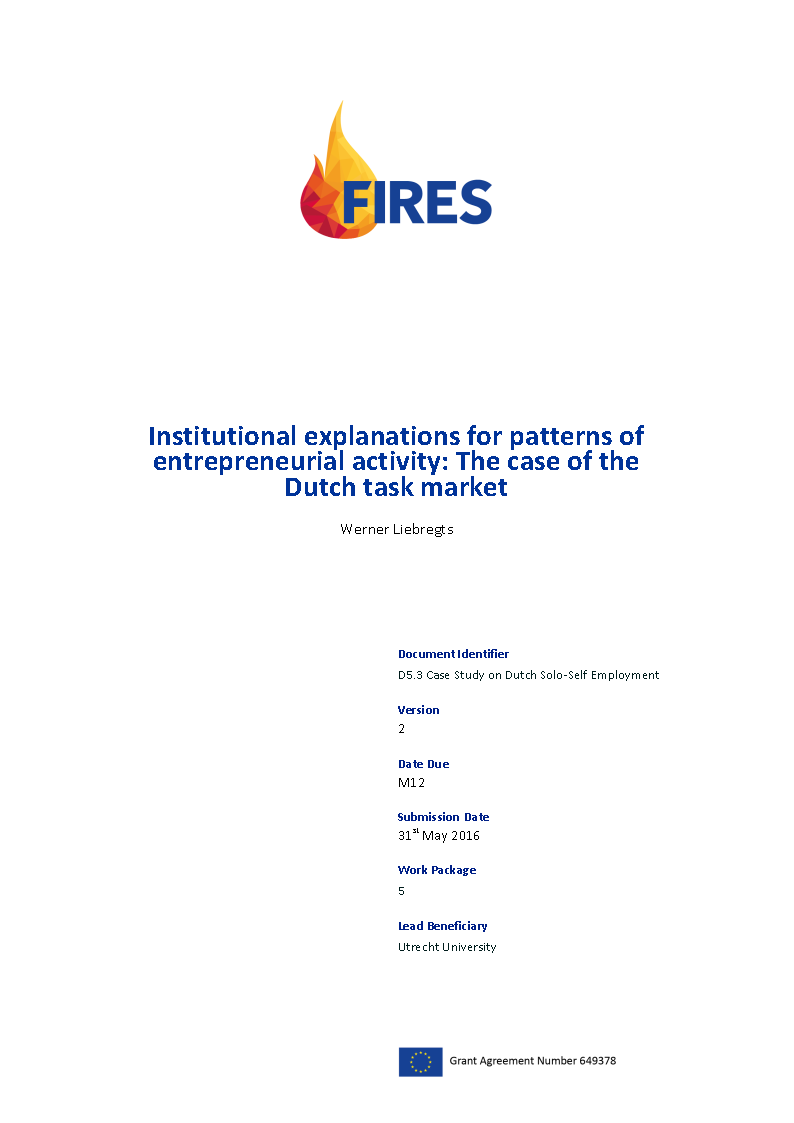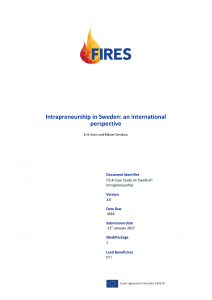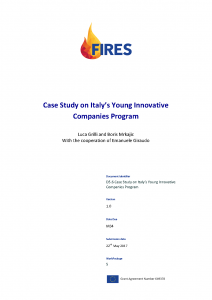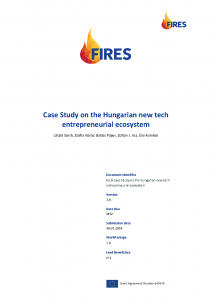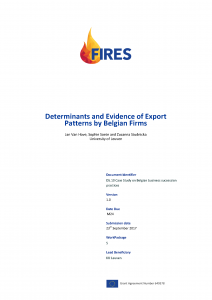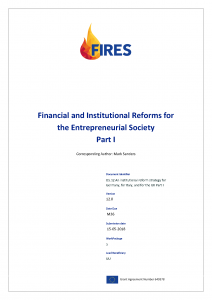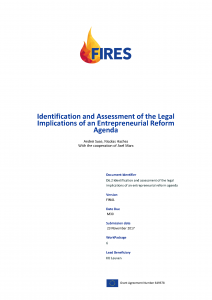- D2.1 An institutional framework for innovation and entrepreneurship
- D2.2 A Historical Perspective on the Varieties of institutions, Finance and Entrepreneurship
- D2.3 Venture Capital in Europe
- D2.4 The institutional evolution of knowledge creation in Europe and entrepreneurship
- D2.5 The institutional evolution of labour market institutions in Europe and entrepreneurship
- D2.7 Megatrends and the transition from a managed to an entrepreneurial economy in Europe
- D3.1 Report on Indicators and Growth Effects of Related Variety
- D3.2 A review paper on indicators and growth effects of related variety at the national and regional level in the EU
- D3.4 Empirical analysis of the effects of related variety at national and regional level in EU
- D3.5 Comparative advantage in routine production
- D3.7 Corporate Social Responsibility and Governance in young SMEs
- D3.8 Entrepreneurial Satisfaction among Senior Entrepreneurs: the moderating effect of industry experience and unemployment status
- D3.10 Mobility of Highly Skilled Individuals and Local Innovation Activity
- D4.1 Report on Extension of the GEDI-Indicator
- D4.3 Time series and panel data analysis of GEI and growth performance indicators
- D4.4 The Regional Entrepreneurship and Development Index: Structure, Data, Methodology and Policy Applications
- D4.5 Cross-sectional analysis of REDI and regional growth performance measures
- D4.6 Economic Impact assessment of Entrepreneurship policies with the GMR-Europe Model
- D5.1a Internationally Comparable Dataset on Startup Processes and their Institutional Foundations in Italy, Germany, UK and US
- D5.1b Sequence Analyses the Reveal Country Specific Typologies of Startup Processes and their Institutional Foundations
- D5.1c Team Formation Processes in New Ventures
- Held, L., Herrmann, A. M., & van Mossel, A. (2018). Team formation processes in new ventures. Small Business Economics, 1-24.
- D5.1d Follow the Money: The Funding Process of Nascent Ventures
- D5.1e What Do I Search For? Variances of Linkage Formation Processes of Nascent Ventures
- D5.2 Case Study on London’s Crowd Funding
- Estrin, S., Gozman, D., & Khavul, S. (2018). The evolution and adoption of equity crowdfunding: entrepreneur and investor entry into a new market. Small Business Economics, 1-15.
- D5.3 Case Study on Dutch Solo-Self Employment
- D5.4: Intrapreneurship in Sweden: An international perspective
- D5.6 Case Study on Italy’s Young Innovative Companies Program
- D5.8 Case Study on the Hungarian new tech entrepreneurial ecosystem
- D5.9 Stock Option Taxation: A Missing Piece in European Innovation Policy?
- D5.10 Determinants and Evidence of Export Patterns by Belgian Firms
- D5.11 Senior Entrepreneurship: Towards a Research & Policy Agenda in Europe + Outlook for Portugal
- D5.12 Financial and Institutional Reforms for the Entrepreneurial Society
- D5.12a FIRES-Reform Strategy for Italy
- D5.12c FIRES-Reform Strategy for the UK
- D5.12b FIRES-Reform Strategy for Germany
- D6.2 Identification and assessment of the legal implications of an entrepreneurial reform agenda
- D6.3 : Assessment of the Political Opportunities and Constraints of the Proposed Reform Agenda
Deliverable 3.1 “A Review Paper on Indicators and Growth Effects of Related Variety”, examined a number of studies that look at Frenken et al. (2007) study introducing the concept of related variety in regional economics. The review of related variety research showed that most of these studies find support for the initial hypothesis by Frenken et al. that related variety supports regional employment growth. The deliverable also reviewed studies that look at the process in which a region or countries develop comparative advantage in new industries (branching) based on the research by Hidalgo et al. (2007). The report’s review found that regions or countries that already host industries related to a specific industry are much more likely to become specialized in that industry. The report ends with a number of further research questions on i. methodology, ii. the role of unrelated variety in regional development, and iii. the need to analyze how related variety may spur innovation and entrepreneurship.
This paper presents datasets on regional variables, in particular on related and unrelated variety on the one hand and opportunity-driven entrepreneurship on the other hand, for EU regions. We discussed the sources, nature and quality of the data, construction of variables as well as the descriptive statistics and spatial patterns. We ended with an outlook, discussing the future research questions that can be addressed empirically using this dataset.
Deliverable 4.1 “Report on Extension of the GEDI-indicator”, introduces the National Systems Entrepreneurship (NSE) as a framework for a resource allocation system driven by individual-level opportunity pursuit through the creation of new ventures and its outcomes regulated by country-specific institutional characteristics. The NSE approach is an important tool for policy makers to identify weaknesses in the entrepreneurial ecosystem. As entrepreneurial ecosystem services created through a myriad of localized interactions between ecosystem stakeholders, it is not easy to trace gaps in ecosystem performance back to specific, well-defined market failures that are addressed in top down modes. Earlier versions of NSE left out important topics such as Finance, Taxes, Labour Markets and Knowledge Institutions. This report addresses how to include taxes, labour markets and knowledge institutions in NSE.
We here describe the empirical approach taken to collect the “perfect timing (PT) database”, which traces the timing of labour-, finance-, and knowhow-related activities throughout the venture creation process on a monthly basis. The sample for this study was drawn from the Orbis database, which provides internationally comparable company profiles. A rigorous catalogue of selection criteria was developed and applied to arrive at a meaningful sample. To collect data in Germany, the US, the UK, and Italy, national call centers were contracted after a thorough tender process. While these call centers recruited venture founders for an interview, the actual interviews were conducted by an interviewer team of research assistants, based at Utrecht University (the Netherlands), Columbia University (NY, USA), the Universität zu Köln (Germany), and the Heinrich-Heine Universität Düsseldorf (Germany). These interviewers were selected and rigorously trained by the survey coordinators. These data collection efforts enabled the recruitment of 820 interviews and completion of 539 interviews within the FIRES project. Together with the already existing data of the preceding Marie Curie project, the PT dataset includes 1044 cases.
This case study offers an entrepreneurial and regulatory perspective on the potential of equity crowdfunding to address the entrepreneurial equity gap, within the context of the rapidly growing UK equity crowdfunding cluster particularly prominent in and around London. It addresses factors driving the growth of equity crowdfunding, including the regulatory and tax regime as well as the broader London entrepreneurial ecosystem, and provides for a comparison of the business models of the current three market leaders. In showing the importance of equity crowdfunding to investors, entrepreneurs, platforms, regulators and stakeholders in the wider national economy, it is argued that key contributory factors in the success of equity crowdfunding in the UK have been the London ecosystem for entrepreneurial finance and the emergence of a sympathetic tax and regulatory regime encouraged by policy makers keen to nurture innovation. Finally, the case study offers five main lessons for researchers and policy-makers to be taken from the London experience.
This case study investigates the rise of solo self-employment in the Netherlands as well as the increasing importance of entrepreneurial activity by employees. The report attempts to explain which institutions have contributed to the deviating pattern in Dutch solo self-employment numbers from a European perspective, and argues that changes in formal institutions regarding the judicial and tax treatment of self-employed as compared to that of employees are the main determinant. It is argued that, mainly driven by globalisation and technological change, labour is increasingly organized in sets of tasks. It is concluded that policy should aim for developing and improving workers’ modern skills like creativity and innovation, rather than educating people for specific jobs, and workers should be made aware that they themselves are increasingly responsible for human capital investments during their own career. Finally, the current legal distinction should be loosened by providing all workers with equal access to the welfare system.

